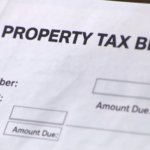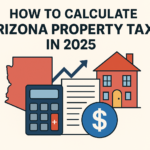California property tax is a tax assessed on real estate properties in the state of California. It is an ad valorem tax, meaning it is based on the assessed value of the property. Property taxes are the primary source of revenue for local governments in California and are used to fund essential services such as schools, roads, and public safety.
Calculating California property tax can seem like a daunting task, but with the right tools and information, it can be a straightforward process. The California property tax rate is determined by the county assessor and varies depending on the location of the property. It is essential to understand how this tax is calculated to ensure you are paying the correct amount.
The California property tax calculator is a useful tool that can help you estimate the amount of property tax you will owe for the year. It takes into account the assessed value of the property, any exemptions or discounts, and the current tax rate in your county.
To use the California property tax calculator, you will need to gather information such as the assessed value of your property (listed on your property tax bill), any exemptions you may qualify for, and the current tax rate in your county. Simply input this information into the calculator, and it will provide an estimate of your property tax bill.
Declaring a property as your primary residence is important to access financial advantages such as the Homeowners’ Exemption and provisions under Proposition 19, which can help reduce taxable values or defer taxes, especially for seniors.
Paying California property tax is a crucial responsibility for property owners. The process typically involves making two installment payments, one in December and one in April. Failure to pay property taxes on time can result in penalties and interest fees.
There are several exemptions available for California property tax, such as the homeowner’s exemption and the disabled veteran’s exemption. These exemptions can provide significant savings on your property tax bill. Additionally, some counties offer discounts for early payment of property taxes.
The revenue from property taxes in California is used to fund various local government services. It is distributed to cities, counties, school districts, and special districts to cover the costs of essential services. The amount of property tax revenue collected also impacts the state budget and helps fund statewide services and programs.
In conclusion, understanding how California property tax is calculated, using the property tax calculator, and staying informed about payment deadlines, exemptions, and revenue distribution can help you navigate this important aspect of property ownership in California with ease.
Introduction to Property Taxes

Property taxes in California are a significant aspect of homeownership, and understanding how they work is essential for property owners. The California property tax system is governed by Proposition 13, which limits the tax rate to 1% of the assessed value of the property. The assessed value is typically the purchase price of the property, and it can increase by a maximum of 2% per year. Property taxes in California are used to fund local services such as schools, police departments, fire departments, libraries, parks, and other community infrastructure. As a property owner, it is crucial to understand how property taxes are calculated, paid, and appealed to ensure that you are not overpaying your fair share.
Key Takeaways:
California property tax is a tax on real estate and is calculated based on the property’s assessed value and the tax rate set by the state.
The California property tax rate is 1% of the assessed value, but can be affected by factors such as local tax rates and exemptions.
Using a property tax calculator can help determine the estimated amount of property tax owed. It is crucial to pay taxes by the designated deadlines to avoid penalties and manage financial responsibilities effectively.
What is California Property Tax?

California property tax is a specific type of tax that is imposed on real estate properties within the state. This tax is known as an ad valorem tax, which means that it is based on the assessed value of the property. The tax rate is determined by the local government and is utilized to support various public services, including schools, infrastructure, and public safety.
It is mandatory for property owners in California to pay their property taxes on an annual basis, and failure to do so can result in penalties and potential loss of the property through tax foreclosure. It is essential for homeowners to understand how California property tax is calculated in order to effectively budget and plan their finances. All property owners, regardless of the nature of their ownership, must pay real property taxes.
How is this Calculated?
Calculating California property tax is a simple process that involves determining the assessed value of the property and applying the applicable tax rate. Here are the steps to follow:
Find out the assessed value of the property, which is typically determined by the county assessor’s office.
Identify the applicable tax rate, which is a percentage set by local governments and school districts.
Multiply the assessed value by the tax rate to determine the annual property tax amount.
Take into account any exemptions or deductions that may apply to lower the tax liability.
Eligible homeowners, particularly those aged 55 and older, can transfer their current home’s taxable value to a new property under Propositions 60 and 90.
Make the property tax payment by the specified due date set by the county treasurer or tax collector.
In a similar situation, a homeowner in California was pleasantly surprised to discover that their property tax was lower than expected due to a recent reassessment of their property value. This unexpected relief allowed them to allocate more funds towards home improvements.
What is the Property Tax Rate?
The California property tax rate is determined by local governments and can vary across different counties and cities. The tax rate is typically expressed as a percentage of the assessed value of the property. In California, the average property tax rate is approximately 1.1%. However, it is important to keep in mind that there may be additional assessments and fees, such as school bond levies or special assessments for local projects, that are added to the base tax rate. Voter approved bonds can also add to the base property tax rate, impacting the overall tax burden for property owners. To get an accurate calculation of your property tax rate, it is recommended to consult your county assessor’s office or utilize online tools provided by the state. Understanding the property tax rate is essential for budgeting and planning for homeownership in California.
What Factors Affect the California Property Tax Rate?
Several factors can impact the California property tax rate. These factors include the assessed value of the property, the tax rate set by local governments, and any special assessments or bonds approved by voters. The tax rate can also be affected by changes in property ownership, new construction, and property improvements.
Non profit organizations may qualify for property tax exemptions if their properties are used exclusively for charitable purposes.
To calculate the California property tax rate, the assessed value is multiplied by the tax rate percentage. It is worth noting that Proposition 13 limits the annual increase in assessed value to a maximum of 2%, unless there is a change in ownership or new construction.
What is the California Property Tax Calculator?
The California Property Tax Calculator is a useful resource for estimating property tax amounts in California. It takes into account factors like the property’s assessed value, tax rate, and any potential exemptions or discounts. By entering the required information, homeowners can get an idea of their potential property tax responsibility. This tool can be beneficial for budgeting and preparing for property tax payments.
The calculator helps determine the taxable value of a property, which is crucial for calculating the property tax owed.
It is important to keep in mind that the calculator provides an estimate and the actual property tax amount may differ. It is recommended to consult with a tax professional or the local tax assessor’s office for accurate information.
How to Use the Tax Calculator?

The California Property Tax Calculator is a useful tool for estimating your property tax liability. To use it, follow these simple steps:
Go to the California Department of Tax and Fee Administration website.
Find the Property Tax section on the website.
Locate the Property Tax Calculator tool.
Enter the necessary information, such as the assessed value of your property.
Provide any additional details required, such as exemptions or special assessments.
Click on the Calculate button to receive an estimate of your property tax.
Disabled veterans may qualify for tax exemptions on their principal residence, which can be factored into the calculator.
Keep in mind that this is only an estimate and actual property tax amounts may vary. For accurate information, it is best to consult with a tax professional or the county assessor’s office. The California Property Tax Calculator can serve as a useful starting point in understanding your potential property tax obligations.
What is the Process for Paying this Tax?

Paying California Property Tax is a straightforward process that can be completed in a few simple steps:
Receive the property tax bill from the county assessor’s office.
Verify the accuracy of the bill, including property details and assessment values.
Calculate the amount owed by multiplying the assessed value by the applicable tax rate.
Make the payment by the designated due date, either online, by mail, or in person.
Keep records of the payment for future reference and tax filing purposes.
The county tax collector’s office is the primary point of contact for property tax payments and related inquiries. They facilitate payment options, including in-person payments and potential payment plans for those facing financial difficulties.
By following these steps, property owners can ensure timely and accurate payment of their California Property Tax.
What are the Payment Deadlines for this Property Tax?
In California, the payment deadlines for property tax vary depending on the county. Typically, the first installment must be paid by November 1st and will be considered delinquent if not paid by December 10th. The second installment is then due on February 1st and will become delinquent if not paid by April 10th. Late payments will result in penalties and interest charges. It is crucial to consult with your county’s tax collector for specific deadlines and any potential changes. To avoid penalties, it is highly recommended to pay property tax before the designated deadlines. Additionally, it may be helpful to set reminders or take advantage of online payment options for convenience and timely payment. If property taxes remain unpaid for a prolonged period, counties may initiate a tax sale to recover the delinquent amounts.
What Happens if You Don’t Pay the Property Tax on Time?
If you do not pay your California property tax on time, there are consequences that you should be mindful of. Late payments usually result in penalties and interest charges, which can substantially increase the amount you owe. Moreover, the county tax collector may initiate foreclosure proceedings if you continue to neglect your tax obligations. If the taxes remain unpaid, additional fees and potential tax sale proceedings can occur after a prolonged period of delinquency. This means that the county has the authority to seize and sell your property to recover the unpaid taxes.
To avoid these potential issues, it is crucial to make sure that you pay your property tax on or before the specified deadline.
Are There Any Exemptions or Discounts for Property Tax?

There are exemptions and discounts available for California property tax. Some common exemptions include the homeowner’s exemption, which reduces the assessed value for owner-occupied properties, and the disabled veteran’s exemption for eligible veterans. In addition, there are discounts available for senior citizens and disabled individuals. These exemptions and discounts serve to alleviate the burden of property tax for certain individuals and provide much-needed financial relief. It is important to become familiar with the specific eligibility criteria and application process for each exemption or discount. California voters have played a significant role in shaping property tax legislation through measures like Proposition 13.
Fun Fact: California has one of the highest property tax rates in the United States, averaging around 0.77% of a property’s assessed value.
What are Some Common Exemptions for Property Tax?
Some common exemptions for California property tax include:
The homeowners’ exemption, which provides a reduction in assessed value for owner-occupied properties.
The disabled veterans’ exemption, which offers tax relief for disabled veterans and their spouses.
The parent-child exclusion, which allows for the transfer of real property between parents and children without triggering a reassessment of the property’s value.
The welfare exemption for qualifying nonprofit organizations.
The solar energy system exclusion, which excludes the value of solar energy systems from property tax assessments.
Property tax relief is available for homeowners affected by disasters or overvaluation of their properties.
These exemptions aim to alleviate the tax burden for eligible individuals and organizations in California.
Are There Any Discounts for Property Tax?
California provides various discounts and exemptions for property tax. These exemptions include the homeowner’s exemption, disabled veteran’s exemption, and senior citizen exemption, which can greatly decrease the amount of property tax owed. Furthermore, there may be discounts offered for specific individuals or situations, like low-income homeowners or properties utilized for agriculture. It is crucial to consult with your local tax assessor’s office to confirm if you are eligible for any discounts or exemptions. Utilizing these opportunities can alleviate the financial strain of property tax. Additionally, it is important to be aware that additional local taxes can vary significantly between different municipalities and should be checked on local tax bills.
What Happens to Property Tax Revenue?
California property tax revenue plays a crucial role in funding local government services and public education. The revenue generated from property taxes is used to support various initiatives, such as infrastructure development, public safety, and healthcare. A portion of the revenue is also allocated to schools to improve educational resources and facilities. The sales price of a home is essential for establishing its base year value at the time of purchase.
The amount of property tax revenue collected in California is influenced by factors such as property values, tax rates, and economic conditions. To better understand how property tax revenue is utilized in your community, it is important to stay informed about local government budget decisions and their impact on funding for these essential services.
How is Property Tax Revenue Used?
California property tax revenue is utilized to fund a variety of public services and government functions. Here are some of the ways in which the revenue is typically allocated:
Education: A significant portion of the property tax revenue is allocated towards funding public schools and universities.
Public Safety: The revenue is also utilized to support law enforcement agencies, fire departments, and emergency services.
Infrastructure: Funds are allocated for the maintenance and improvement of roads, bridges, parks, and other public facilities.
Social Services: A portion of the revenue is dedicated to providing social welfare programs, including healthcare, housing assistance, and support for low-income individuals and families.
Local Government Operations: Property tax revenue helps cover the costs of running local government entities, including administrative expenses and salaries.
Overall, the revenue from California property tax plays a crucial role in supporting essential public services and ensuring the welfare and development of the state. It is important for property owners to pay their taxes on time to contribute to the betterment of their communities. Understanding property tax regulations in the Golden State is crucial for homeowners and investors.
What Impact Does Property Tax Have on the State Budget?
The impact of California property tax on the state budget is significant. Property tax revenue plays a crucial role in funding various public services and programs, such as education, healthcare, infrastructure, and public safety. The revenue generated from property taxes helps support local government operations, including maintaining parks, libraries, and emergency services. It also contributes to funding state initiatives and addressing budgetary shortfalls. Property taxes are assessed based on factors like purchase price and current market value.
California’s growing population and property values contribute to the increasing revenue from property taxes, ensuring continued funding for essential services.
Pro-tip: Understanding the impact of property tax on the state budget can help individuals comprehend the importance of timely payment and the role they play in supporting public services.
How is the assessed value of real property determined?
The assessed value of real property in California is determined annually by the Office of the Assessor-Recorder.
Managing both income taxes and property taxes is essential for overall financial responsibilities.
What is the secured property tax rate for Fiscal Year 2025-26 in California?
The secured property tax rate for Fiscal Year 2025-26 in California is subject to change and may vary by county. It is typically around 1% of the assessed value, but additional local taxes and assessments can apply. For the most accurate and up-to-date information, property owners should consult their county assessor’s office or official county publications.
When are secured property tax bills mailed?
Secured property tax bills are mailed in October in California.
Understanding the property’s assessed value is crucial for filing appeals and ensuring it reflects a fair market evaluation.
Can property taxes be paid in installments?
Yes, property taxes in California can be paid in full or in two installments. A supplemental property tax bill is issued after a reassessment of the property’s value when it is purchased or newly constructed.
What happens if there is a change in ownership or new construction of a property in California?
If there is a change in ownership or new construction of a property in California, it triggers a reassessment of the property, resulting in a supplemental bill if the new value is higher than the previous one.
Additionally, these supplemental property tax charges can vary significantly based on local decisions and specific property characteristics.
What are the penalties for delinquent property tax payments in California?
The penalties for delinquent property tax payments in California vary depending on the month in which the bill is mailed. For bills mailed between July 1 and October, the first installment is due on December 10 with a 10% penalty for delinquency. The second installment is due on April 10 with a 10% penalty and a $55.00 administrative fee for delinquency.
The California Consumer Price Index impacts how property taxes are calculated by influencing the annual adjustment of assessed values, capped at 2%, which in turn directly affects the amount homeowners pay in property taxes.
Appealing Property Tax Assessments
If you believe that your property has been over-assessed, you have the right to appeal the assessment. The appeal process involves several steps:
Review Your Assessment Notice: Carefully examine the assessment notice sent by the county assessor’s office. Compare the assessed value with the current market value of similar properties in your area.
Gather Evidence: Collect evidence to support your claim that the assessed value is too high. This can include recent sales data of comparable properties, an independent appraisal, or photographs showing property defects.
File an Appeal: Submit an appeal to your county’s assessment appeals board. This typically involves filling out a form and paying a small fee. Be sure to adhere to the deadlines specified by your county.
Attend the Hearing: Present your case at the hearing, providing the evidence you have gathered. Be prepared to answer questions and justify your position.
Await the Decision: After the hearing, the appeals board will make a decision. If your appeal is successful, your property’s assessed value will be adjusted, and your property tax bill will be reduced accordingly.
Appealing a property tax assessment can be a complex process, but it can result in significant tax savings if your property has been overvalued.
New Homeowners and Property Tax
As a new homeowner in California, it’s essential to understand how property taxes work and how they will impact your finances. When you purchase a new home, the county assessor will reassess the property’s value to reflect the current market value as of the sale date. This will likely result in a higher assessed value compared to the previous owners. In the first year after the sale, your property taxes will be based on this new reassessed value, which means your first property tax bill as a new homeowner will be significantly higher than what the previous owners paid. However, thanks to Proposition 13, in subsequent years the assessed value can only increase by a maximum of 2% per year, regardless of how much the market value increases.
Understanding this process is crucial for budgeting and financial planning. Be prepared for the initial increase in your property tax bill and take advantage of any available exemptions to reduce your tax liability.
Commercial vs. Residential Properties
Commercial properties in California are assessed and taxed differently than residential properties. In general, commercial properties are taxed at a higher rate than residential properties. The key differences are:
Assessment Basis: Commercial properties are taxed on their full market value, while residential properties are taxed on their assessed value, which is often lower due to Proposition 13.
Additional Taxes: Commercial properties are subject to additional taxes, such as business license fees and utility taxes, which do not apply to residential properties.
Special Assessments: Commercial properties may be subject to special assessments for infrastructure improvements, which can significantly increase the overall tax burden.
Understanding these differences is crucial for commercial property owners to ensure they are not overpaying their property taxes. By staying informed and taking advantage of any available exemptions or deductions, commercial property owners can effectively manage their tax liabilities.
Conclusion
Understanding property taxes in California is crucial for homeowners and property managers. With the right knowledge and tools, such as the property tax calculator, you can accurately estimate your tax liability and take advantage of available exemptions to reduce your burden. Staying informed about payment deadlines and the appeal process can prevent penalties and ensure you are not overpaying. Property taxes play a vital role in funding essential services across the state, and timely payments contribute to the betterment of communities.
FAQs
1. How do I calculate property taxes in California?
To calculate property taxes in California, multiply the assessed value of your property by the local tax rate. Consider any exemptions or discounts that may apply to reduce your tax liability.
2. How much is property tax on a $300,000 house in California?
For a $300,000 house, the base property tax would be approximately $3,300 annually, based on the average 1.1% tax rate. Additional local taxes and assessments may apply.
3. How much is property tax in California per year?
The annual property tax in California varies based on the assessed value and location of the property. The average rate is around 1.1%, but this can fluctuate with additional local taxes.
4. How much is California state tax on $100,000 income?
California state income tax rates range from 1% to 13.3%, depending on your income bracket. For a $100,000 income, the rate would typically fall between 9.3% and 11.3%, depending on deductions and credits.
5. What happens if I don’t pay my property taxes on time?
Failure to pay property taxes on time can result in penalties, interest charges, and potentially a tax sale of your property if the taxes remain unpaid.
6. Are there any exemptions or discounts available?
Yes, common exemptions include the homeowner’s exemption and the disabled veteran’s exemption. Discounts may also be available for senior citizens and low-income homeowners.
7. Can I pay my property taxes in installments?
Yes, California allows property taxes to be paid in two installments, typically due in December and April.
By understanding these aspects of property taxes, you can better manage your financial responsibilities and contribute to the growth and development of your community.
Dave is a seasoned real estate investor with over 12 years of experience in the industry. Specializing in single-family residential real estate, David’s strategic approach combines market analysis, financial acumen, and a deep understanding of urban development trends to maximize investment returns.










